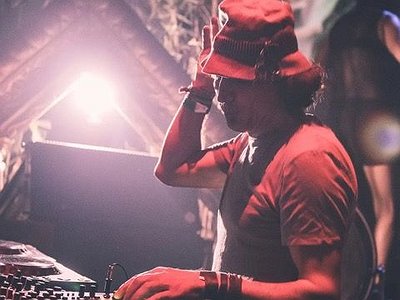Part 1
Name: Zigan Aldi
Nationality: Turkish
Occupation: Musician
Current Release: Zigan Aldi's Nebelmaschine EP on The Gardens of Babylon
Recommendations: Esma Redžepova, she was a great Macedonian Romani musician and contributed a lot into her culture / Transylvania by Tony Gatlif
If you enjoyed this interview with Zigan Aldi, he has an Instagram account where you can follow his adventures and keep up with new releases.
When did you start writing/producing music - and what or who were your early passions and influences? What was it about music and/or sound that drew you to it?
My musical journey started 30 years ago but I started to produce my own tracks only 10 years ago. Romani music has an intensive influence in my productions. Their music has been thought of as an ordinary part of the entertainment culture with a commercial aspect in Turkey, and still does so. However, when you look deeper into Romani music, you can easily see the originality and creativity in it. It has so much color and layering which change in different parts of the world. Romani music has no certain pattern and rhythms which is what drew me into it.
For most artists, originality is preceded by a phase of learning and, often, emulating others. What was this like for you: How would you describe your own development as an artist and the transition towards your own voice?
I have never had a commercial expectation from music. I started to make music because music was my way of expression. Romani music, eastern sounds and instruments, organic production of music and being in the studio with friends and trying freely without any limits is how I developed myself and my voice.
How do you feel your sense of identity influences your creativity?
Everything that I’ve lived, go through and heard can be felt in my music. My music is a time capsule of my life that takes me to the past or future sometimes. My life is bound to my music and vice versa.
What were your main creative challenges in the beginning and how have they changed over time?
I dream about the music that I create. My dreams influence my music. I always try to reach that imaginative sound that runs in my head. But dreams change constantly and this results in the feeling of incompleteness. My biggest challenge but at the same time the biggest push, is the feeling of incompleteness and the hope that I will find that imagined sound one day.
As creative goals and technical abilities change, so does the need for different tools of expression, be it instruments, software tools or recording equipment. Can you describe this path for you, starting from your first studio/first instrument? What motivated some of the choices you made in terms of instruments/tools/equipment over the years?
For me there were always technical knowledge constraints that I had to work hard to overcome. But I had Robert Helms who supported me a lot with technical tools and the many other ways to produce my music. I wouldn’t be able to make it without his support. Technical constraints do affect my choices. I have always been thrilled by organic music and tools have been complicated for me so I prefer to work with live musicians in my productions.
Have there been technologies or instruments which have profoundly changed or even questioned the way you make music?
Not really because my biggest challenge is to learn new software/tools.





